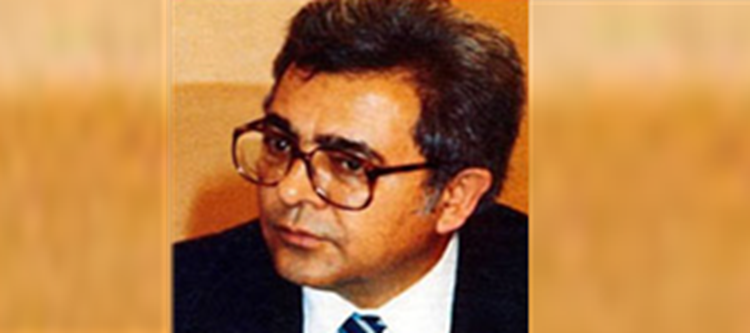
The National Council of Resistance of Iran (NCRI) have published an article on their website marking the 26th anniversary of the death of Professor Kazem Rajavi.
Professor Rajavi was a renowned defender of human rights in Iran and was also the older brother of Massoud Rajavi. On Sunday 24th April it was 26 years since Professor Rajavi was assassinated by a terrorist hit squad of the mullahs’ regime. He was only 56 years old and held six doctorate degrees from the universities of Paris and Geneva in the fields of law, political science and sociology.
With the assistance of Christian Grobet, a Geneva resident who would later become head of government advisors, he established, in 1971, the Swiss Society for Defense of Iranian Political Prisoners.
His younger brother had been sentenced to death on political charges, but Kazem managed to get the sentence amended to life in prison.
Kazem was also the Iran’s first Ambassador to the United Nations headquarters in Geneva following the 1979 revolution. However, not long after being appointed, he resigned from the post as a protest against the “repressive policies and terrorist activities of the ruling clerics in Iran”. From then onwards, he put more and more effort into the campaign against the human rights violations of the regime, namely mass execution, arbitrary arrests and other forms of torture.
In Geneva, as well as working as a university professor, he was the representative of the main opposition coalition National Council of Resistance of Iran (NCRI) in Switzerland.
The article highlights that his resolve in fighting against the horrific and countless violations of the regime led the UN to appoint a Special Rapporteur for Iran.
However, Kazem was also subject to threats because of his actions. “In the hall of the UN Headquarters, a diplomat-terrorist of the regime” said he would kill Kazem. And in 1986, “the then-Supreme Leader of the mullahs’ regime Ruhollah Khomeini issued a fatwa for Dr. Rajavi to be killed”.
He was gunned down, in broad daylight, on 24th April 1990, as he was driving to his home in Coppet, a village near Geneva. His death, at the hands of several agents of the Iranian regime’s notorious Ministry of Intelligence and Security (MOIS), required “enormous resources, extensive planning, and coordination among several of the regime’s organizations”.
Swiss judicial and police officials were able to confirm the Iranian government’s involvement after a long and thorough investigation. They found that 13 official agents of the Iranian regime has used “service passports” to enter the country to carry out the assassination.







